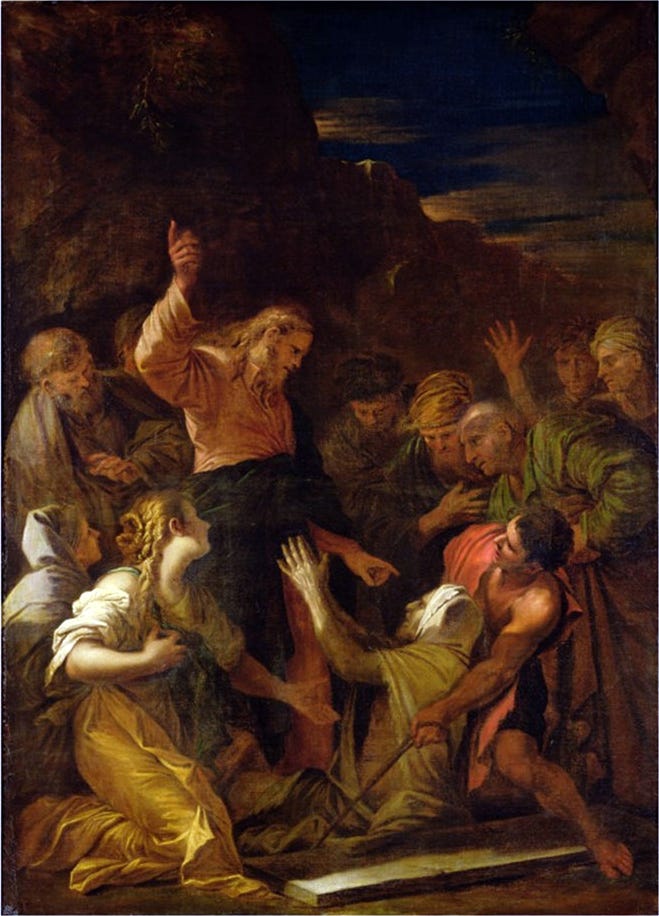Today we hear the familiar healing of the ten lepers. They see Our Lord pass by and call out to Him for mercy:
“They stood at a distance from him and raised their voice, saying,
“Jesus, Master! Have pity on us!” Luke 17:12-13
Our Lord turns with eyes of pity toward them and heals them. The first part of this narrative finds men, marred in the flesh by a disease of uncleanliness. Leprosy, in its scriptural context, can point to the disease of sin. Just as lepers were cast out of Jewish society as they were unclean in the flesh which made them unworthy to enter the temple or be within society, our own mortal sin damages our soul and makes us unworthy of reception of the Eucharist. To heal this uncleanliness of soul we must cry out to the Lord:
Jesus, Master! Have pity on us!
We do this through the sacrament of confession. We beg for the mercy of God to wash over us and heal us.
The second part of this narrative is just as important for us to gain a lesson from. After we have asked for mercy, and it has been given, we must be like the one leper who comes back:
“As they were going they were cleansed.
And one of them, realizing he had been healed,
returned, glorifying God in a loud voice;
and he fell at the feet of Jesus and thanked him.” Luke 17:15-16
One out of ten came back and offered thanksgiving for what he had received. Not only was he healed but this meant he was also allowed back into communion with society. This man recognized the immense mercy that Our Lord had shown him and returned to give thanks.
I want to highlight two places that this is applicable:
The first is after we leave the confessional. Hopefully, we will take a few minutes to do our penance as this is required. But after our penance, do we offer a prayer of thanksgiving for the immense mercy that was just shown to us? We walked into that confessional on the road to hell through our mortal sin and we walked out with the indwelling of the Trinity and our state of grace restored. Just like the leper, we are readmitted to communion with the Blessed Trinity and the Universal Church. If we could only see the drastic change in our soul after this wonderous sacrament. We all ought to offer thanks to our merciful Lord for the immense grace He continually shows us.
The second is after receiving the Eucharist at Mass. Despite what certain people have said recently, the time after communion is a time of recollection and intimate union with Christ who we have just received into our bodies and into our souls. We should be returning to our seat and retreating into our interior room to spend those few intimate moments with Our Lord who has loved us so much as to come dwell within us. There is no other act in that moment that is more fitting than to enter into conversation with Our Eucharistic Lord and to thank Him for this immense grace. He has knocked at your door, and you have let Him in. Now speak with Him and thank Him for gracing your interior room.
For more from Dr. McGovern, visit his Substack at A Thomist, Dedicated to the Theological tradition of St. Thomas Aquinas. Exploring Thomas’ Spiritual Theology and topics in Christology and Mariology.



Beautiful and hope filled! Thank you!